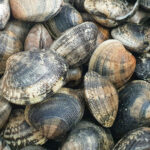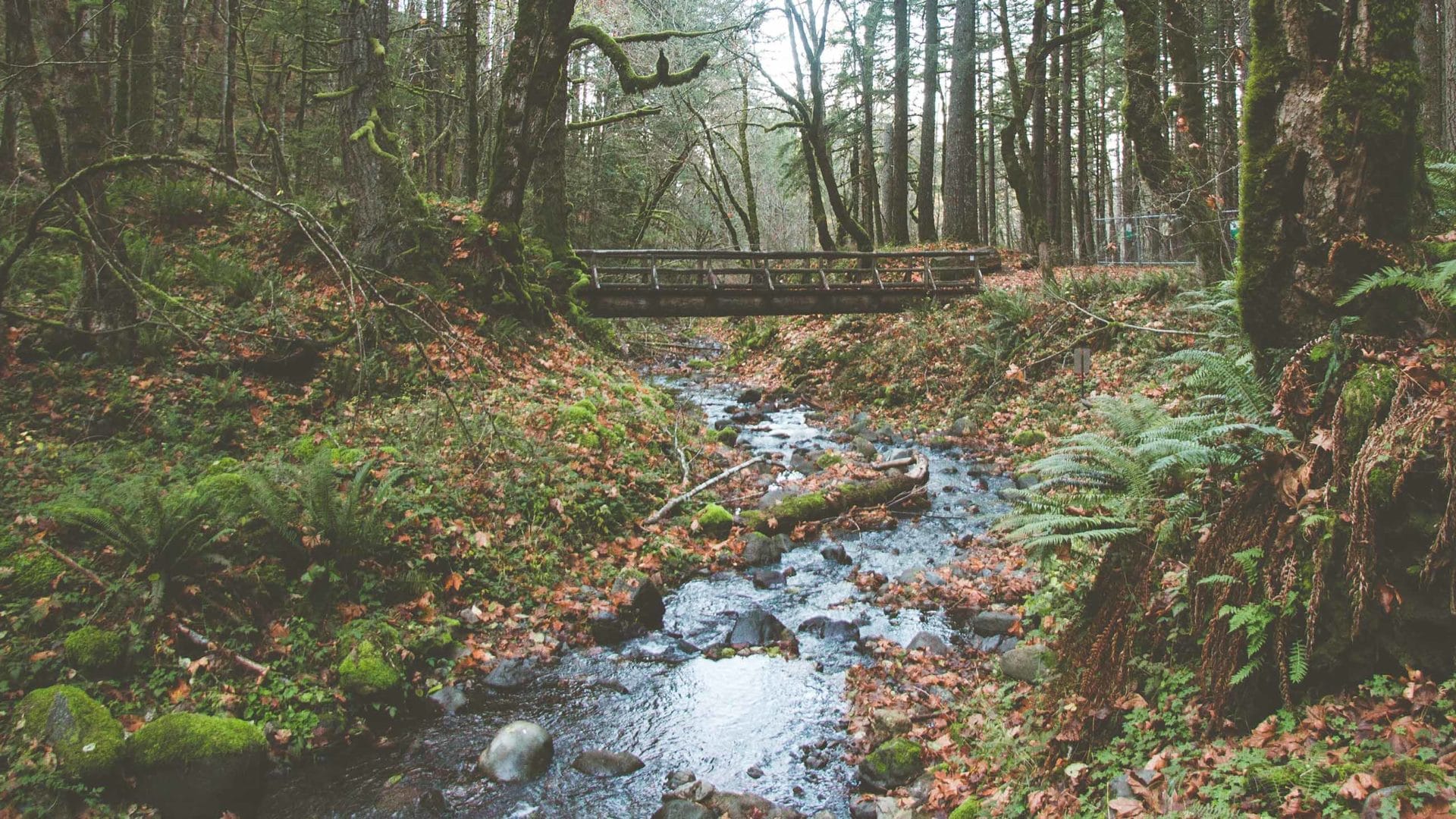Speaking at the World Economic Forum meeting in Davos, Switzerland this week, U.S. President Donald J. Trump seemed to thumb his nose at environmental activists. Against a backdrop of accumulating temperature records — and a growing chorus of scientists who suggest that the impacts of climate change are only going to become more difficult to manage — Trump emphasized the virtues of economic growth and scolded the “perennial prophets of doom and their predictions of the apocalypse.”
Whether Trump was aiming his comments directly at climate activists specifically, or environmentalists more generally, was unclear (press reports made haste to note that Swedish teenager and climate-action campaigner Greta Thunberg was in the audience during Trump’s remarks). But attacks on mainstream environmental and public health science have long been part of the president’s rhetorical repertoire — and such commentary has tended to telegraph, with little ambiguity over the last three years, policy changes aimed at undercutting science and loosening regulatory protections for … well, for just about everything.
So it is perhaps not surprising that, while Trump was making the rounds in Davos, his administration was busy in Washington finalizing a rule this week that would slash historic environmental protections for many wetlands, including miles of seasonal streams, tributaries, and other small waterways that — until brought under federal oversight by President Barack Obama in 2015 — had been only haphazardly regulated, if at all. The Trump administration has long battled the regulation in court, and in September, it formally repealed it. This week’s action will finalize a much more industry- and development-friendly replacement to the Obama-era provision.
According to Environmental Protection Agency estimates made under the Obama administration, well over half of all streams in the U.S. flow seasonally, or only after rain — and yet they have a significant impact on downstream waters. These were among the water sources that the new rules were designed to protect. Speaking to The New York Times, Blan Holman, an attorney with the Southern Environmental Law Center, called the move “the biggest loss of clean water protection” ever seen in the United States. “This puts drinking water for millions of Americans at risk of contamination from unregulated pollution.” Holman added that the Trump’s tack did more than reverse rulemaking made under his immediate predecessor. “This is stripping away protections that were put in place in the ’70s and ’80s that Americans have relied on for their health,” Holman told The Times.
While the move has been heralded by fossil fuel developers, farmers, and real estate developers, among other industry representatives who called the restrictions onerous, pushback from watershed scientists has been swift and frequent. One letter submitted earlier this month to the Environmental Protection Agency, and authored by former members of President Obama’s science advisory board, said the 2015 water protections were “based on an established science of waterbody connectivity … and buttressed by recent literature.” In contrast, the scientists argued, the Trump administration’s rollback “is not based on sound science, nor does it provide any comparable body of peer-reviewed science to support the proposed changes.”
Several state attorneys general have already sued to block the Trump administration’s revisions, and The Times suggested that more lawsuits loom.
Also in the news:
• Trump’s dismissals of climate change aside, the U.S. government has put $4 million toward research in geoengineering, the latest sign that the controversial approach to countering global warming may be going mainstream, reports E&E News. David Fahey, the top climate change scientist at the National Oceanic and Atmospheric Administration, received the funding to study two emergency options for cooling the Earth: injecting sulfur dioxide particles akin to volcanic gas into the stratosphere, and using aerosols of sea salt particles to enhance the solar reflection of low-lying clouds over the ocean. Geoengineering strategies are considered controversial in part because of their potential for unintended consequences, including changes to regional weather patterns, crop yields, and ocean acidity. But Fahey told his staff yesterday that “the federal government is ready to examine the science” behind the potential planet-saving technology. He emphasized to E&E News that the approval of the project is not an endorsement of geoengineering, but rather an attempt to “prepare the U.S. government for a political decision if the world fails to adequately limit the rise of global warming.” As yet, there are still no planned experiments, but Fahey indicated that more than $100 million could eventually be attached to the effort. (E&E News)
• Public health officials announced on Tuesday that a man in Washington state had been diagnosed with a type of coronavirus that’s been spreading through China, marking the first reported case in the U.S. The news comes as the virus, which causes pneumonia-like symptoms, has infected more than 570 people and killed 17. Earlier this month, scientists said they had tracked the outbreak to a food market in the city of Wuhan in China’s Hubei province. As the Centers for Disease Control and Prevention begins screening passengers traveling from the city to the U.S., Chinese authorities have implemented travel restrictions in Wuhan and several neighboring cities. The ban on flights, as well as public transportation, comes just days before the Chinese Lunar New Year, angering some residents and leaving others confused. As hospitals and clinics swell with patients anxious to get checked out, some doctors say they simply don’t have the resources to handle them. Responding to that, one patient told The New York Times: “I’m willing to accept that we have to stay in Wuhan, O.K., but the medical care needs to keep up. You shouldn’t tell us we can’t leave, and then give us second-rate medical care. That’s unfair.” (STAT News, The New York Times)
• Internet technology and consumer giants including Facebook, Google, and Amazon spent nearly half a billion dollars on lobbying this past decade, according to federal disclosures made public late on Tuesday. In 2019 alone, Amazon and Facebook each spent roughly $17 million on federal lobbying, while over the course of the decade, each companies’ lobbying spending was somewhere around $80 million. Google, however, spent even more than its peers, dedicating roughly $150 million to federal lobbying over the past 10 years. The newly released federal records also noted that the total in lobbying funds was attributed to just seven technology companies overall. Critics have argued that this sort of spending is at least partly responsible for the lack of aggressive legislation aimed at more effectively regulating Silicon Valley — including measures to protect their users’ private data. “They’re spending hundreds of millions of dollars to try to protect the status quo,” said David N. Cicilline, a Democratic Representative from Rhode Island. When contacted for a response to the new lobbying disclosures by The Washington Post, Facebook, Apple, Microsoft, Google, Uber, and Twitter all declined to comment. (The Washington Post)
• The state of California recently opened a controversial conversation about whether the popular drug acetaminophen — used to treat pain and fever — should be labeled as a suspected carcinogen. The question derives from rules set by California’s powerful 1986 Safe Drinking Water and Toxic Enforcement Act, also known as Proposition 65. Since that law passed, the state has required labels warning of potential cancer and reproductive toxicity risks for about 900 chemicals. State health officials acknowledge that the evidence for such harm caused by acetaminophen is thin, but point out that there have been enough questions to merit more than 130 studies, some of which have found evidence of carcinogenic action. Further, they argue that given the widespread use of acetaminophen, in products ranging from Tylenol to Theraflu, it’s essential to give the concerns a thorough review. Manufacturers complain that the administrators of Proposition 65 are over-zealous and their tendency to label products in which the risk is uncertain, like this one, leads to unnecessary consumer confusion and alarm. The period of public comment before the state schedules a hearing on the issue ends on January 27. (Los Angeles Times)
• Chicago public health advocates and providers announced a new initiative to eliminate racial disparities in cervical cancer incidence and mortality rates in the city, with the ultimate goal of eradicating cervical cancer entirely. Almost all cervical cancer is caused by infection from human papillomavirus (HPV), which is preventable through vaccination. According to the National Cancer Institute, Chicago has a 39 percent higher incidence rate of cervical cancer and a 60 percent higher death rate than national averages. A majority of these cases is made up by black women. “A woman in Washington Park is 85 times more likely to die of cervical cancer compared to a woman in Hyde Park,” says Anne Marie Murphy, executive director of Equal Hope, the non-profit launching the initiative. The group plans to combat this trend by helping uninsured women access regular screenings, diagnoses and treatment for cervical cancer, and to improve health systems that are currently failing to prevent HPV infection rates. Says oncologist Dr. Summer Dewdney, “I see these young women who are in their 30s or 40s with these horrible cervical cancers — advanced stage 3, 4. These are diseases you should be seeing in Third World countries or where they don’t have health care.” (The Chicago Tribune)
• And finally: Residents of southern Florida were hit with strange and unseasonable weather this week: Cold with a chance of green iguana showers. Experts warned this week that as the region’s temperatures fell below 40 degrees Fahrenheit (and even colder with the wind chill), the cold-blooded iguanas could become immobilized, lose their grip on tree branches, and tumble to the ground. These falls typically aren’t fatal and the reptiles regain their mobility when temperatures rise again, though a long enough cold snap can kill the iguanas. By Wednesday morning, social media was flooded with pictures of fallen iguanas and some locals were hawking fresh iguana meat — the “chicken of the trees.” The reptiles are safe to eat, as long as the meat is properly cleaned, stored, and cooked, according to a blog from the University of Florida Institute of Food and Agricultural Sciences. Iguana gumbo would likely be welcomed by local wildlife biologists, as the iguanas are an invasive species in Florida known to cause substantial damage to sidewalks and building foundations with their burrows. The iguanas also gobble up endangered plants and snails, and can transmit salmonella through their droppings. Earlier this year the state declared “open season” on the iguanas, encouraging homeowners to humanely kill any spotted on their property. (The Miami Herald)
“Also in the News” items are compiled and written by Undark staff and interns.










